"All you ever heard was me giving you a hard time."
Na-young (Jeon Do-yeon) doesn't like her mother, Yeon-soon (Ko Doo-sim). She finds her outspokenness embarrassing, her constant spitting disgusting and her preoccupation with money unseemly, to the extent that she is utterly, and consciously, determined never to become like her. When her father, Jin-kook (Park Hae-il) - whom she believes is a weak man - is diagnosed with a terminal illness and subsequently goes missing, Na-young grudgingly cancels a work-related trip to New Zealand and travels to Ha village (where Yeon-soon and Jin-kook lived in their younger days, and where she believes he has gone), in order to find him and bring him back home. However, on arriving there, she finds herself almost thirty years in the past, and comes face-to-face with her mother as a young woman (also played by Jeon Do-yeon)...
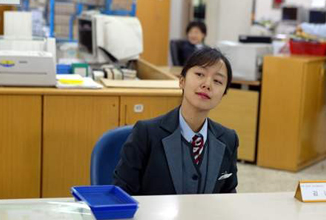 |
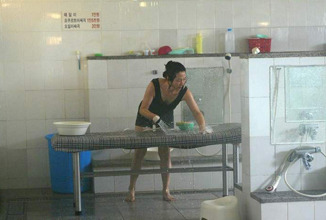 |
Review:
Stories featuring shifts in time, or parallel timelines, have always been popular subjects for South Korean filmmakers, most notably in the romantic melodrama genre, but whereas films such as Il Mare (2000) or Ditto (also 2000) - to name but two - use a time shift as a major element to drive the plot throughout, here it is used simply as a means to allow Na-young to be able to witness the blossoming relationship of her parents in their youth.
In fact, My Mother The Mermaid has much more in common with films such as The Classic (2003) - in overall feel, thematic references to the responsibilities (and constraints) placed on previous generations in Korea, and the focus of a large part of both plots on the burgeoning love affairs of the main characters - than with either of the other aforementioned titles and, with the time slip being a relatively small part of proceedings, director Park Heung-sik wisely doesn't waste any valuable time attempting to explain the means by which Na-young comes to be in the past - she's just there.
Instead, he is able to focus his attention on building the personalities of the characters themselves which, along with the exemplary performances of all concerned (more on this later in the review), and further helped by the fact that Na-young's view of events is almost identical to that of the audience (as an unknown outsider welcomed into the day-to-day lives of Yeon-soon and Jin-kook), a much greater degree of viewer empathy is elicited throughout, than would otherwise have been possible.
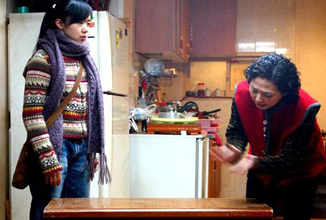 |
 |
My Mother The Mermaid is a simple story, told with genuine warmth and affection, which places the characters' needs, hopes and dreams centre stage, and though the eventual outcome is unlikely to come as a surprise, in a film such as this it's the journey, rather than the destination, that's important:
As both the audience and Na-young begin to become acquainted with Yeon-soon, in her youth, we gradually see the innocent origins of each of the idiosyncrasies and preoccupations which Na-young has always found so annoying (most noticeable in her constant rubbing out of the writing in her Korean language books, and the reason behind her unshakeable belief in her mantra "Go later... You can still do it later"), and combined with our increasing knowledge of the many sacrifices which she has made, without question or hesitation, for her family, our (and Na-young's) opinion of the mother Yeon-soon becomes cannot help but soften, eventually leading to feelings laced with understanding and sympathy.
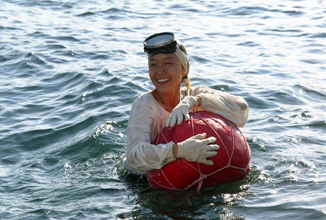 |
 |
With regard to the themes present, My Mother The Mermaid positively screams with references to Korea's patriarchal past - of a time when women were considered to be subordinate to men (especially husbands) and were expected to sacrifice their own dreams and desires to care for, and pander to, their spouses and families. Yeon-soon's present-day life clearly shows the resultant psychological fallout from the responsibilities and constraints forced upon the women of her generation, and it isn't until the conclusion of the film approaches that we finally see that, though she may have changed a great deal since her youth, her heart is still the same as it was all those years ago.
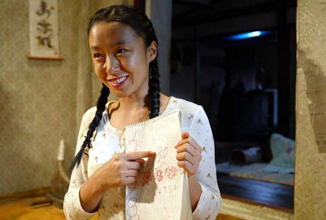 |
 |
Visually, My Mother The Mermaid is gorgeous - the bright and sunny scenes in Ha village taking on a dreamlike, ethereal quality when compared to the more muted colours of the present day. Not only that, but the segments showing the young Yeon-soon in her role as a diver, use composition and imagery akin to deep sea documentaries, with Yeon-soon and her fellow divers almost taking on the visual personas of dolphins, or indeed mermaids. In fact, these scenes are so perfectly composed that a narration by David Attenborough would have in no way seemed out of place. The beautiful musical score accentuates the sumptuousness of the scenes still further and balances the greatly differing sections, and time periods, perfectly.
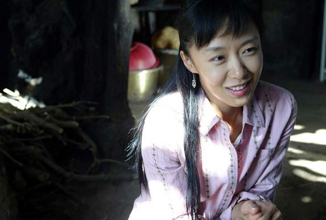 |
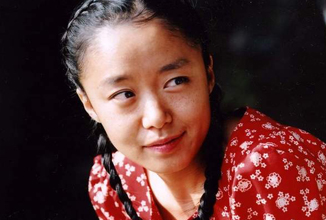 |
Cast:
Anyone aware of the acting talent of Jeon Do-yeon will be pretty convinced that if she stars in a film, then that film is more than likely worth watching - and such is the case with My Mother The Mermaid. However, that doesn't even come close to summing up just how good her performances (playing both the relatively sophisticated Na-young and young country girl, Yeon-soon) really are. Amazingly, though the two characters that she plays often inhabit the same frame at the same time, her portrayals are each so uniquely individual that at no point does it ever feel like we are watching the same person and no confusion between Na-young and Yeon-soon could ever be made.
Jeon Do-yeon's portrayals also serve as a benchmark for the rest of the cast, who all successfully step up to the mark and give top-notch performances throughout, with the well written characters and great dialogue (often consisting of well-placed, gentle humour) raising the level of proceedings even further.
Summary:
My Mother The Mermaid is a simple story, beautifully conceived, realised and acted throughout. Dedicated "To mother", it, in fact, stands as a dedication to motherhood itself.
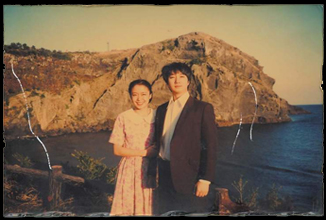 |
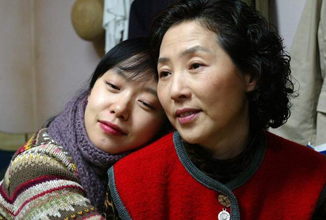 |
DVD:
The DVD used for this review is the Korean Region 3, Single Disc Edition, which comes in deluxe packaging and has an anamorphic transfer presented in a 1.85:1 aspect ratio. The picture is incredibly clear, with good colour balance throughout and is free of ghosting and image artifacts. Most notable are the scenes set in Ha village, which visually make the lives, of all the characters there, seem like a perfect dream.
The sound is a choice of Dolby Digital 5.1 and Dolby Digital 2.0, both of which are beautifully crisp.
Subtitles are provided for the main feature but it should be noted that though they are, more or less, gramatically correct, in several places subtitle sentences are cut off halfway across the screen. Mostly it's a pretty easy job to figure out the gist of what was said, however there are a couple of occassions where viewers who don't speak Korean will have to just let the odd line go and try and figure things out from subsequent dialogue. Sadly, this does detract slightly from an otherwise well presented DVD package.
*English speaking viewers should also be aware that, as is the case with the majority of Korean (Region 3) releases, there are no English subtitles available for any of the extras.*
DVD Details:
Title: My Mother The Mermaid (2004) (DVD) (Single Disc Edition) (Korea Version)
Cast: Jeon Do-yeon, Park Hae-il, Ko Doo-sim, Lee Seon-gyun
Director: Park Heung-sik
Language: Korean
Subtitles: English, Korean
Country of Origin: South Korea
Picture Format: NTSC
Disc Format(s): DVD (Single disc)
Region Code: 3 - South East Asia
Publisher: Daekyung DVD
* Screen format: 1.85:1 Anamorphic Widescreen
* Sound: Dolby Digital 5.1/2.0
* Extras:
NG Cut
Deleted Scene
Music Video
Theatrical Trailer
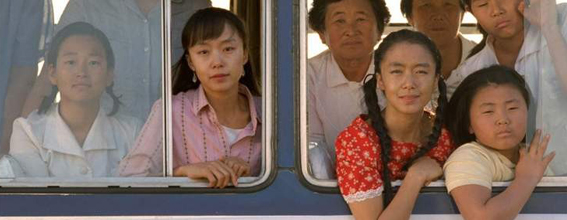 |
|














